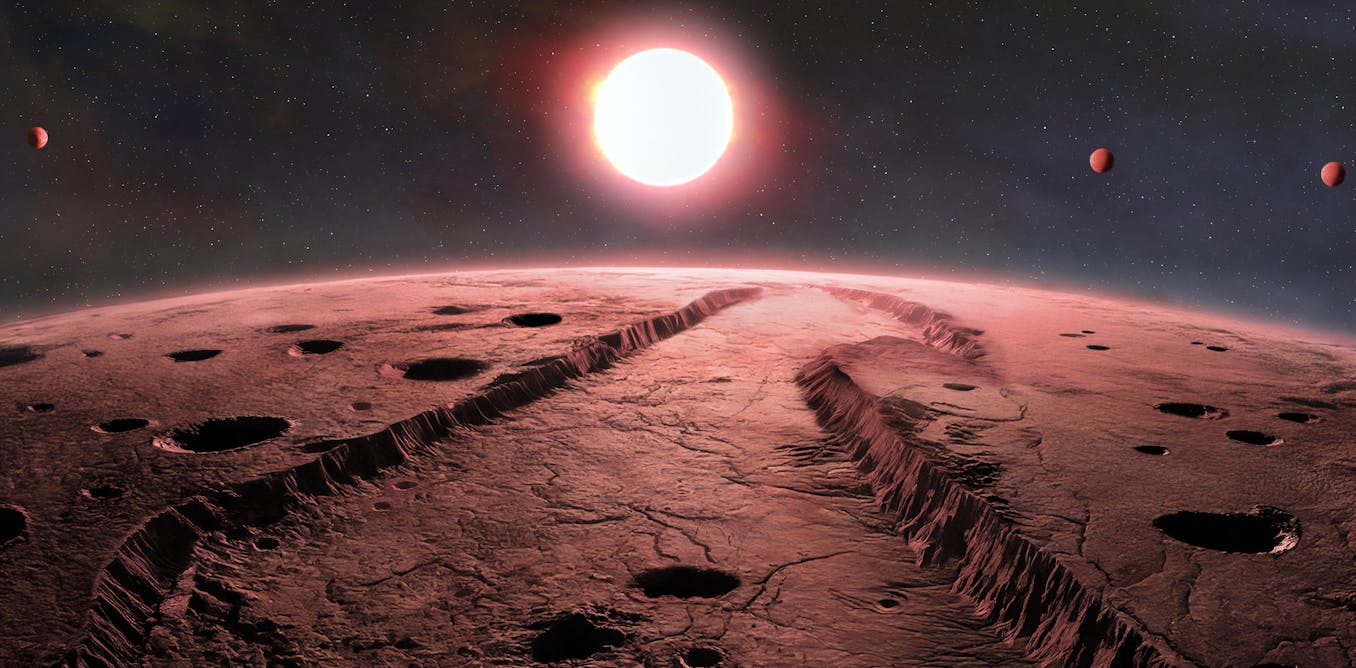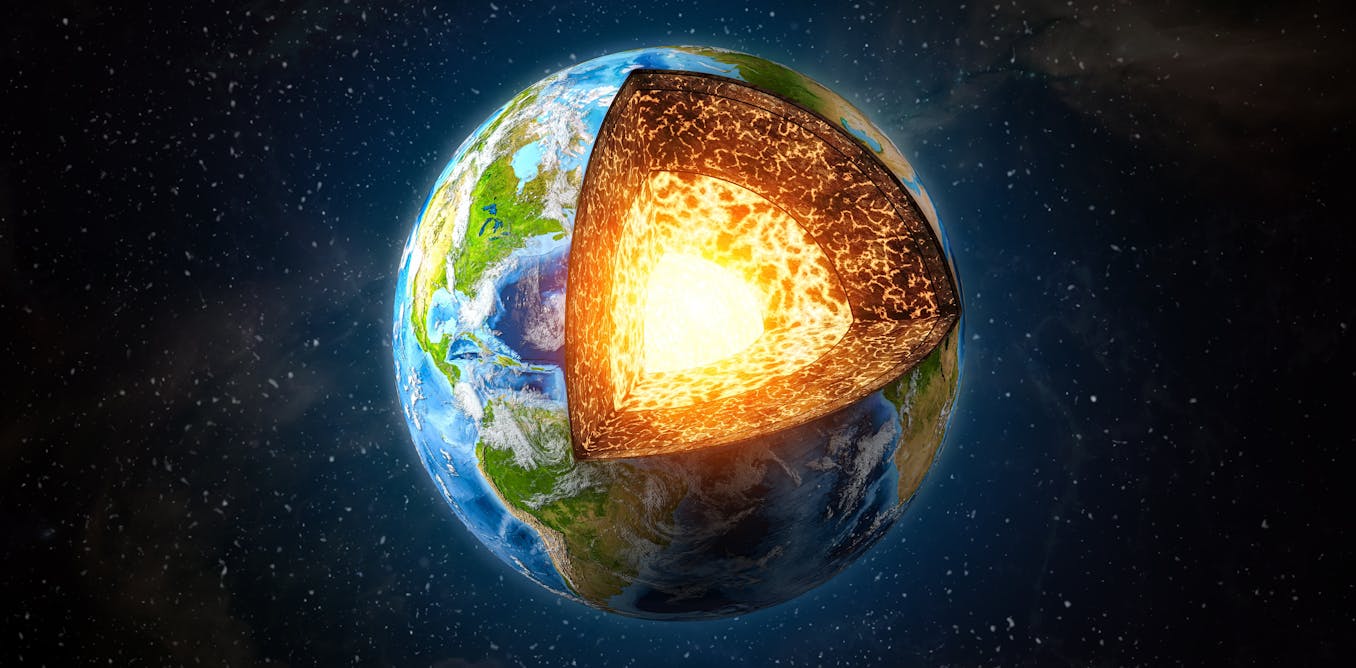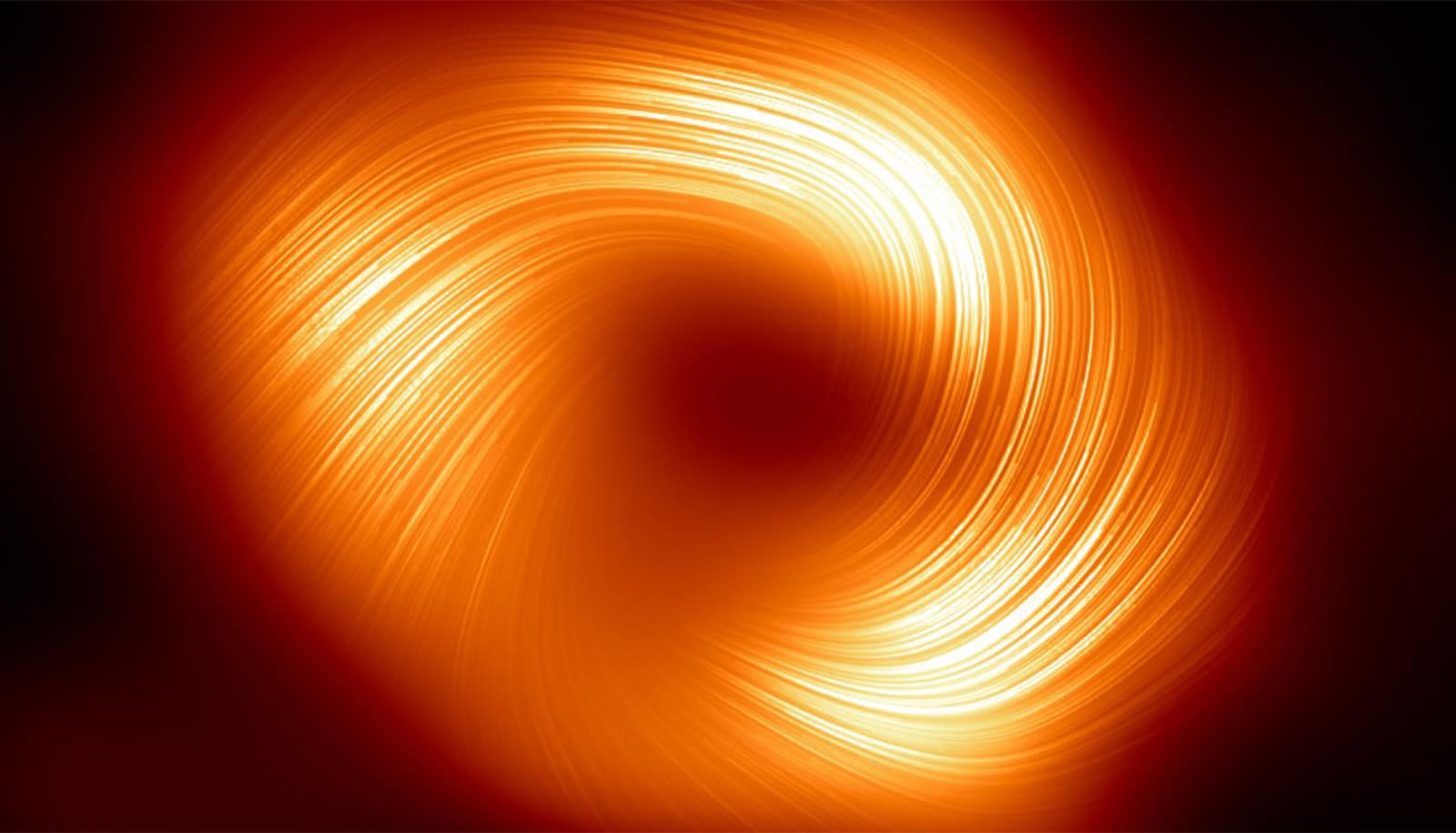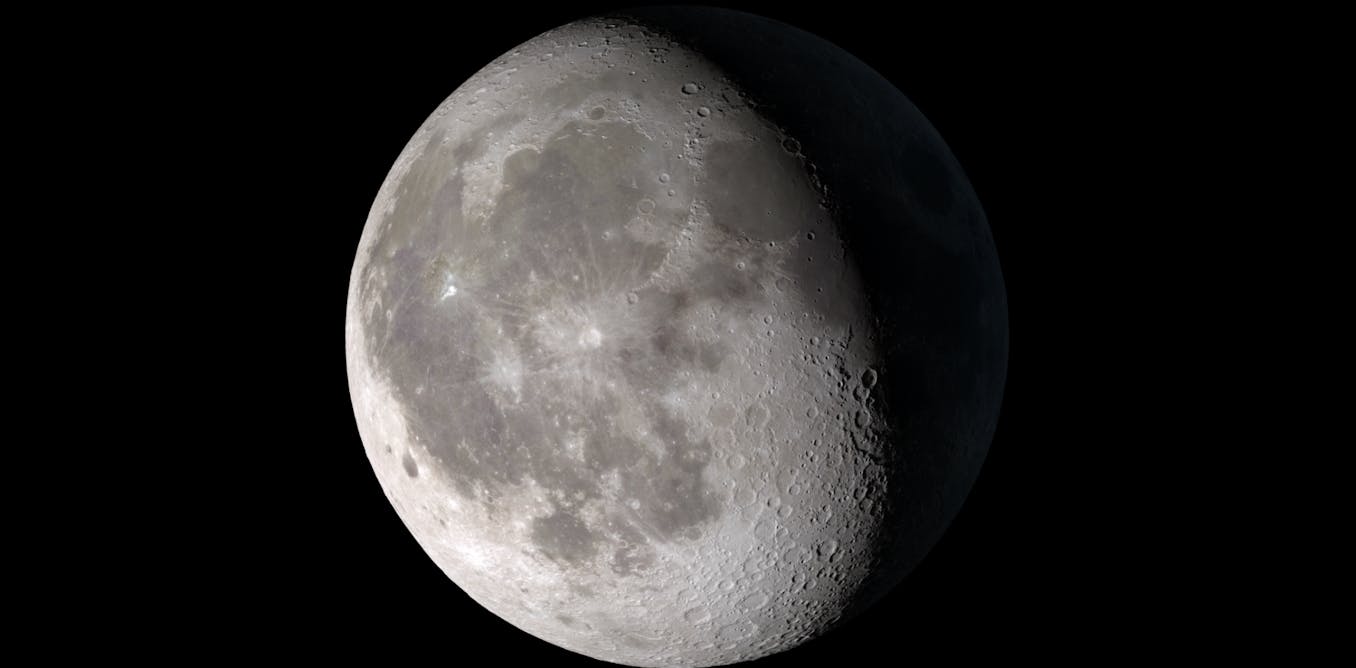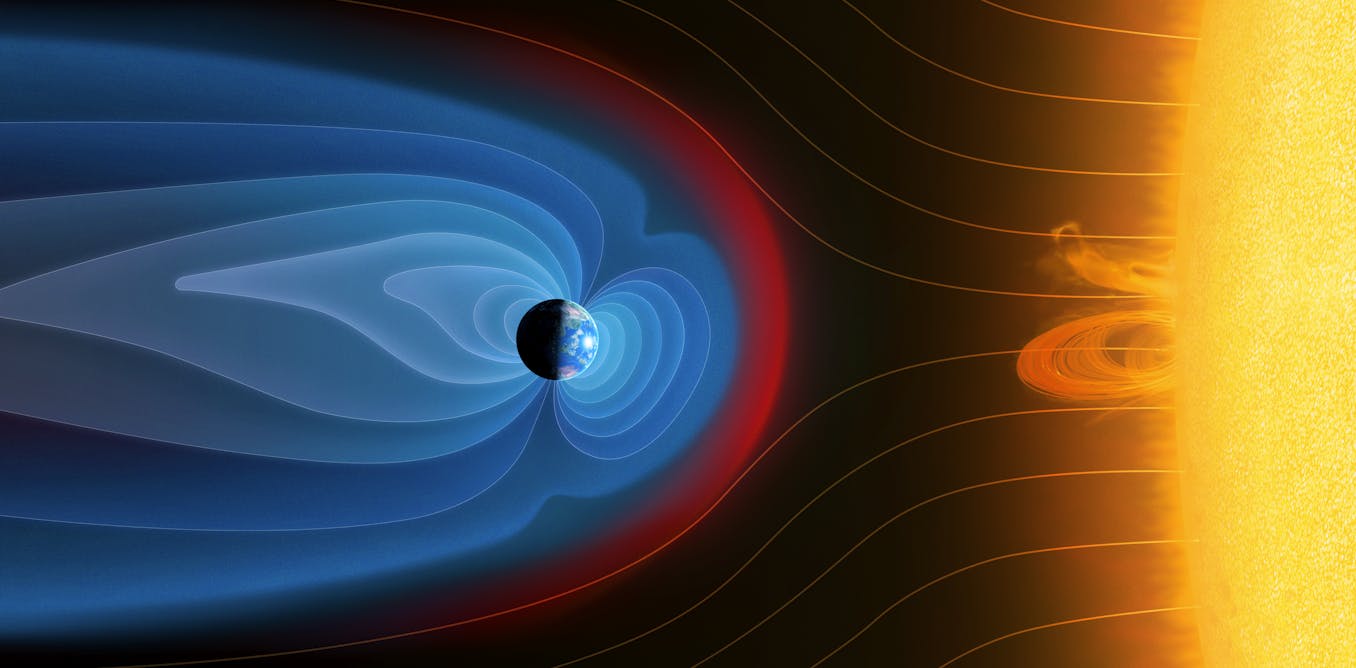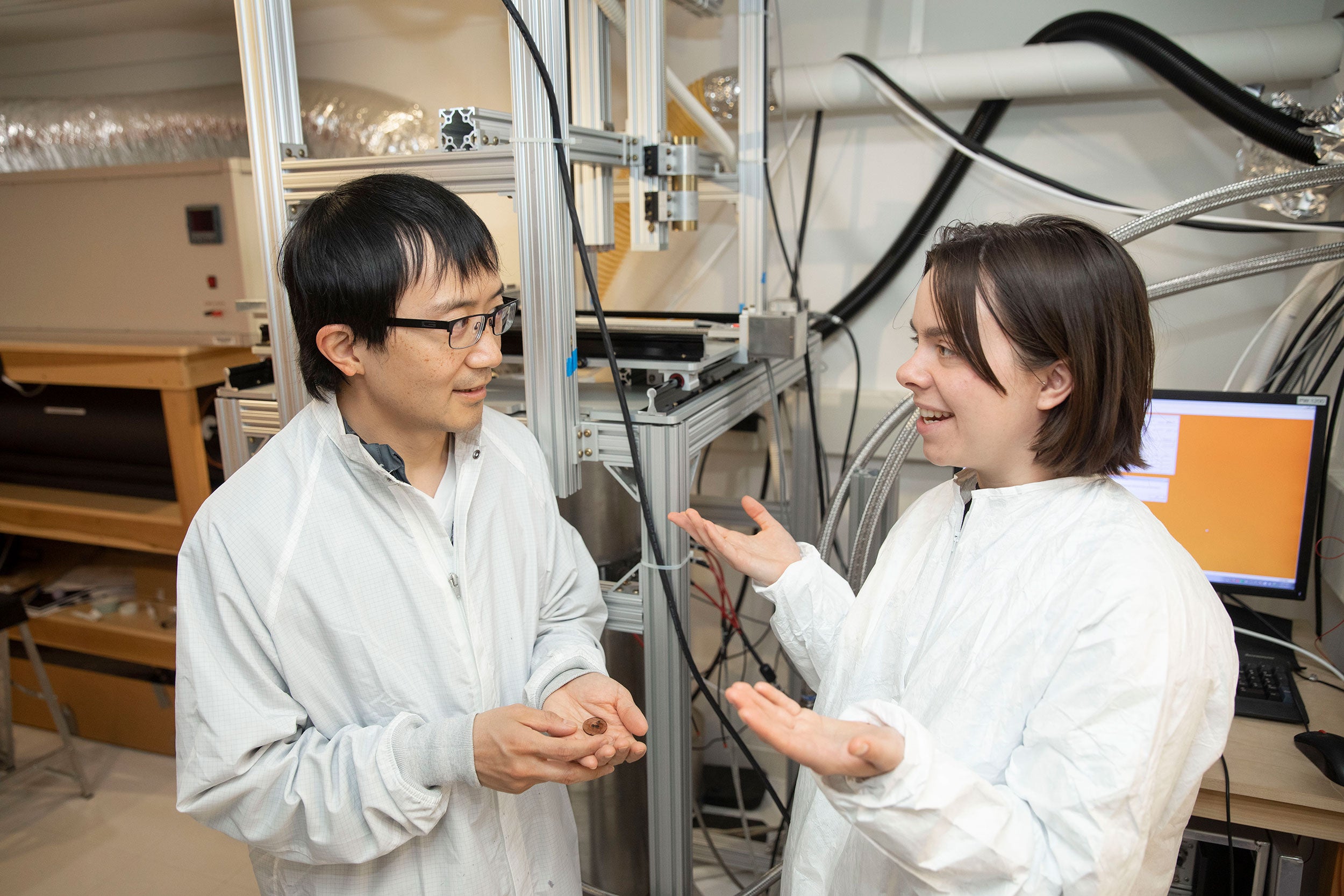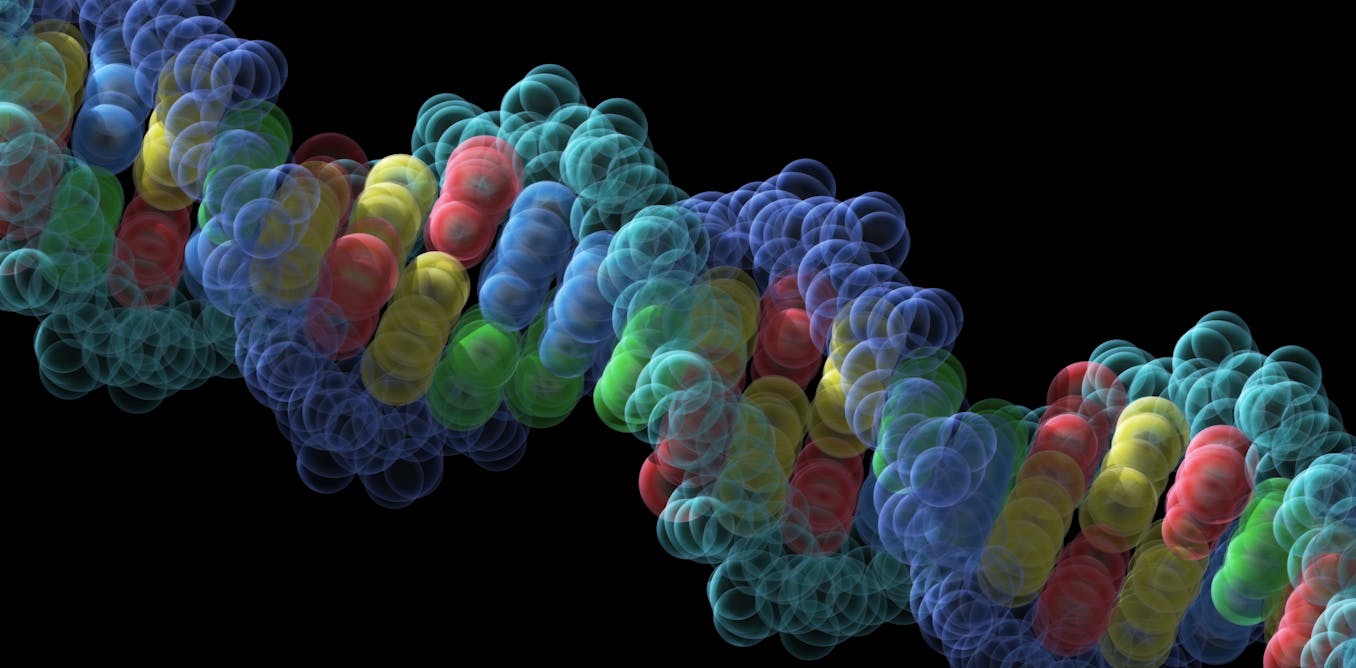Colliding plasma ejections from the Sun generate huge geomagnetic storms − studying them will help scientists monitor future space weather
While geomagnetic storms can lead to gorgeous aurora displays, they can also damage satellites and GPS.
Feb. 21, 2025 • ~6 min
Privatised Moon landings: the two US missions set to open a new era of commercial lunar exploration
The Peregrine and Nova-C landers are due to carry out valuable science at two diverse lunar locations.
Jan. 2, 2024 • ~8 min
Earth's magnetic field protects life on Earth from radiation, but it can move, and the magnetic poles can even flip
Ever seen the northern lights? You have a magnetic layer in Earth’s atmosphere to thank for those beautiful displays. But the magnetosphere does a lot more than create auroras.
Nov. 27, 2023 • ~8 min
How do astronomers know the age of the planets and stars?
Measuring the ages of planets and stars is tricky. An observational astrophysicist describes the subtle clues that provide good estimates for how old different space objects are.
Oct. 2, 2023 • ~6 min
Quantum physics proposes a new way to study biology – and the results could revolutionize our understanding of how life works
Studying the brief and tiny quantum effects that drive living systems could one day lead to new approaches to treatments and technologies.
May 15, 2023 • ~9 min
How do superconductors work? A physicist explains what it means to have resistance-free electricity
Superconductors are materials that can transmit electricity without any resistance. Researchers are getting closer to creating superconducting materials that can function in everyday life.
March 24, 2023 • ~6 min
/
5

